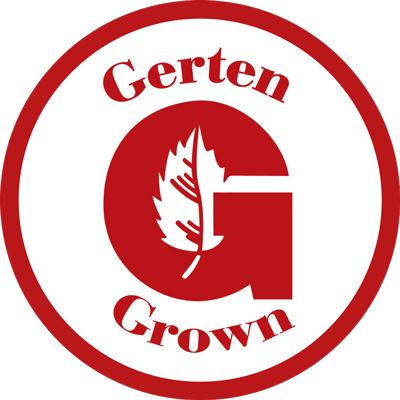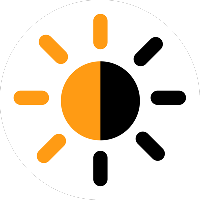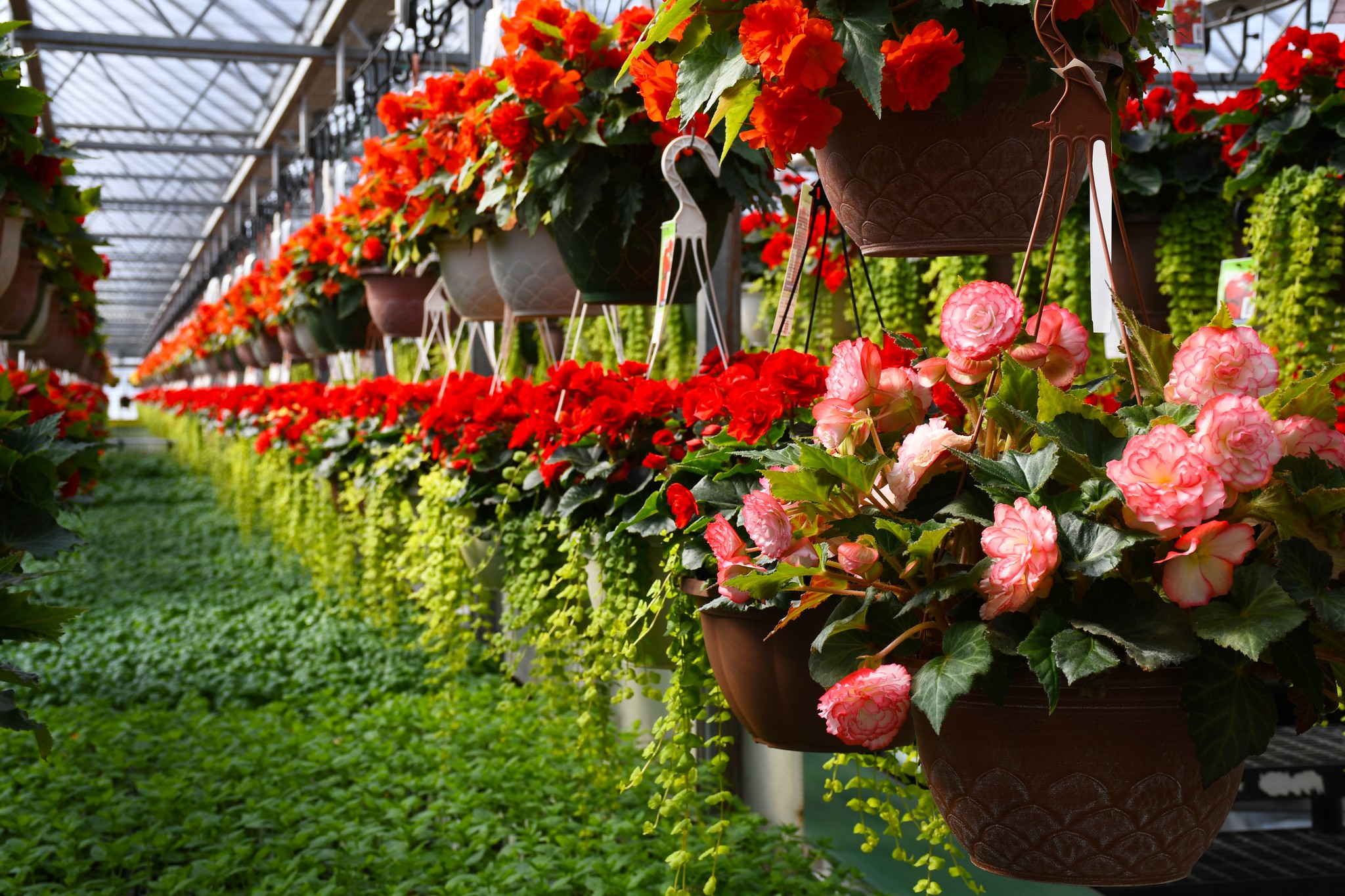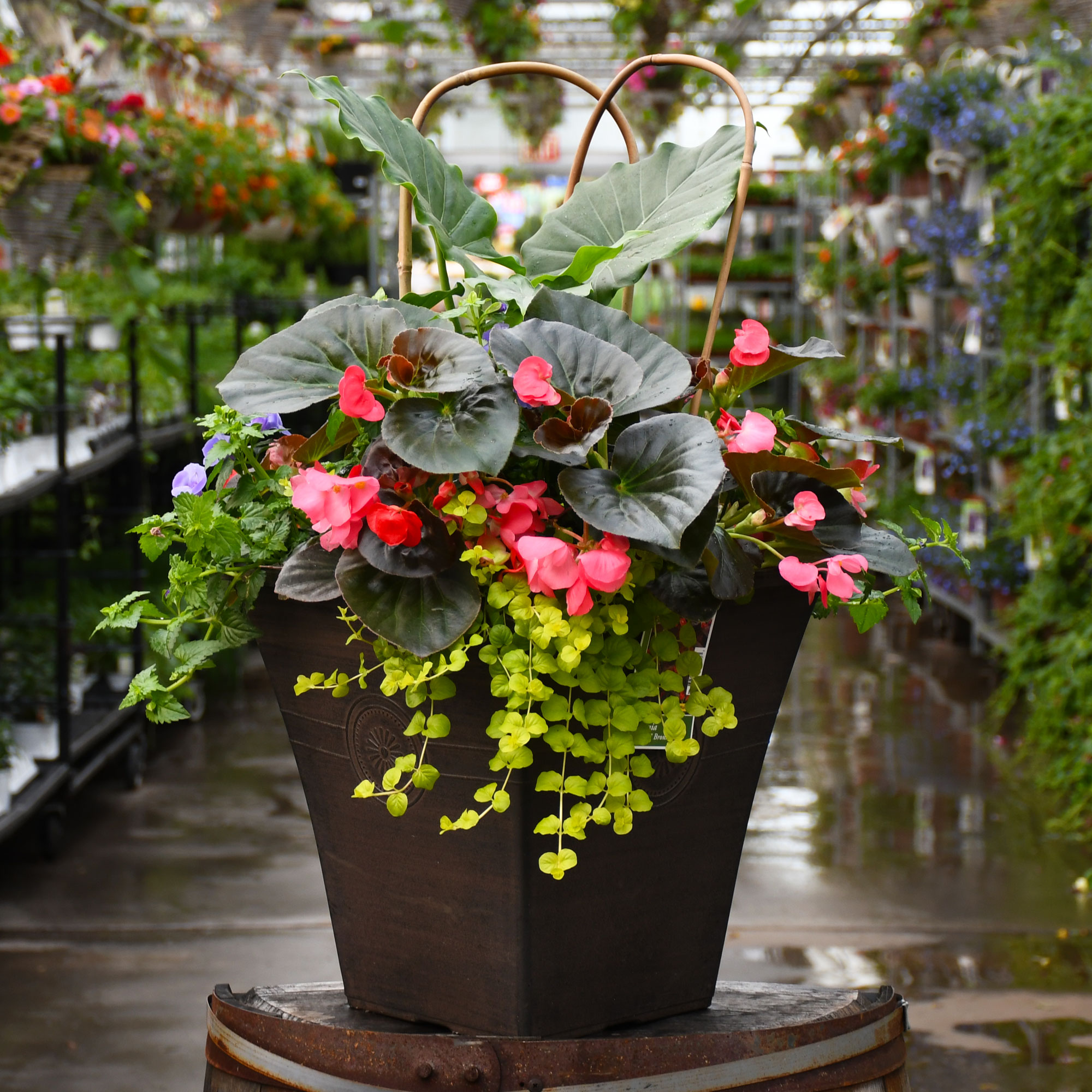Hedera Helix, English Ivy 'Gold Child'



Out of stock
Sold out for the season, check back in the Spring!- Sun Preference
- Full-Sun, Part-Sun
Description
Gold Child Ivy has attractive gold-variegated dark green foliage with hints of grayish green on a plant with a spreading habit of growth. The glossy lobed leaves are highly ornamental and remain dark green throughout the winter.
Direct from the Grower
When you see the Gerten Grown logo on our annuals, you know you're getting a fresh plant directly from our greenhouse. We've been perfecting our growing process for over four generations and pride ourselves on providing local quality and freshness to our customers. Better pricing on better quality plant material, that's Gerten Grown.
Details
Gold Child Ivy is a multi-stemmed evergreen woody vine with a twining and trailing habit of growth. Its average texture blends into the landscape, but can be balanced by one or two finer or coarser trees or shrubs for an effective composition.
This woody vine will require occasional maintenance and upkeep, and can be pruned at anytime. Gardeners should be aware of the following characteristic(s) that may warrant special consideration;
- Spreading
Gold Child Ivy is recommended for the following landscape applications;
- General Garden Use
- Groundcover
- Container Planting
Gold Child Ivy will grow to be about 10 feet tall at maturity, with a spread of 3 feet. As a climbing vine, it tends to be leggy near the base and should be underplanted with low-growing facer plants. It should be planted near a fence, trellis or other landscape structure where it can be trained to grow upwards on it, or allowed to trail off a retaining wall or slope. It grows at a medium rate, and under ideal conditions can be expected to live for approximately 30 years.
This woody vine performs well in both full sun and full shade. It prefers to grow in average to moist conditions, and shouldn't be allowed to dry out. It is not particular as to soil pH, but grows best in rich soils, and is able to handle environmental salt. It is highly tolerant of urban pollution and will even thrive in inner city environments, and will benefit from being planted in a relatively sheltered location. Consider applying a thick mulch around the root zone in winter to protect it in exposed locations or colder microclimates. This is a selected variety of a species not originally from North America, and parts of it are known to be toxic to humans and animals, so care should be exercised in planting it around children and pets.
Gold Child Ivy makes a fine choice for the outdoor landscape, but it is also well-suited for use in outdoor pots and containers. Because of its spreading habit of growth, it is ideally suited for use as a 'spiller' in the 'spiller-thriller-filler' container combination; plant it near the edges where it can spill gracefully over the pot. It is even sizeable enough that it can be grown alone in a suitable container. Note that when grown in a container, it may not perform exactly as indicated on the tag - this is to be expected. Also note that when growing plants in outdoor containers and baskets, they may require more frequent waterings than they would in the yard or garden. Be aware that in our climate, most plants cannot be expected to survive the winter if left in containers outdoors, and this plant is no exception. Contact our experts for more information on how to protect it over the winter months.
When grown indoors, Gold Child Ivy can be expected to grow to be about 10 feet tall at maturity, with a spread of 3 feet. It grows at a medium rate, and under ideal conditions can be expected to live for approximately 30 years. This houseplant performs well in both bright or indirect sunlight and strong artificial light, and can therefore be situated in almost any well-lit room or location. It prefers to grow in average to moist soil. The surface of the soil shouldn't be allowed to dry out completely, and so you should expect to water this plant once and possibly even twice each week. Be aware that your particular watering schedule may vary depending on its location in the room, the pot size, plant size and other conditions; if in doubt, ask one of our experts in the store for advice. It is not particular as to soil pH, but grows best in rich soil. Contact the store for specific recommendations on pre-mixed potting soil for this plant. Be warned that parts of this plant are known to be toxic to humans and animals, so special care should be exercised if growing it around children and pets.
There are many factors that will affect the ultimate height, spread and overall performance of a plant when grown indoors; among them, the size of the pot it's growing in, the amount of light it receives, watering frequency, the pruning regimen and repotting schedule. Use the information described here as a guideline only; individual performance can and will vary. Please contact the store to speak with one of our experts if you are interested in further details concerning recommendations on pot size, watering, pruning, repotting, etc.
-- THIS IS A HOUSEPLANT AND IS NOT MEANT TO SURVIVE THE WINTER OUTDOORS IN OUR CLIMATE --
More Information
| Gerten Grown Plants | Gerten Grown Plants |
|---|---|
| Common Family Name | Hedera |
| Sun Preference | Full-Sun, Part-Sun |
| Plant Life Cycle | Annual |
| Mature Height (Range) | 7-12" |
| Mature Spread (Range) | Under 12", 12" - 24" |


